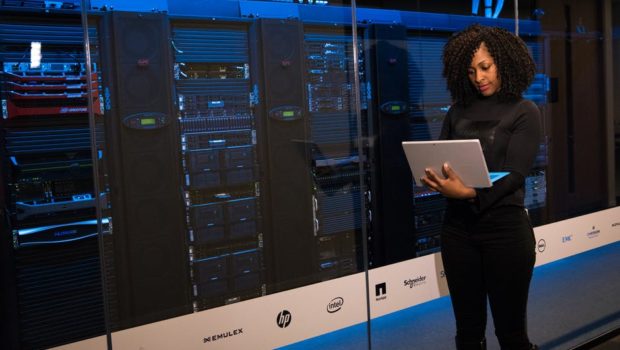Data Center Operations: What You Need to Know
You may have heard about data centers and the large amounts of information they hold. Here is what you need to know about data center operations.
By 2025, the total number of digital data created globally will rise to a whopping 163 zettabytes. This mind-boggling figure is a confirmation that data never sleeps in the modern age.
Businesses must, therefore, work around ways of storing their business-critical information. This is especially so as big data becomes an emerging reality.
You’ll likely begin to feel overwhelmed soon enough. This is more so as the amount of digital data in your possession grows. Data centers bridge the gap in the provision of physical storage facilities for your enterprise’s data needs.
Are you wondering about data center operations and how these facilities function? Here’s more on data centers.
What’s a Data Center?
Data centers refer to a composition of technical elements. Such components are useful in providing support for the management of business-critical data. A data center comprises routers, switches, security devices, servers, and storage systems.
These elements support a firm’s critical operations. You may opt to host your data center or outsource such services. The decision depends on your business’s technical capability.
Whichever plan you settle for, operating a data center is more complicated than it looks. So how do these critical facilities operate?
Data Center Operations Require Scalability
Data management will never be the same again. The age of big data means that companies must strive to keep up with information management. Consequently, you need a scalable data center operations structure.
Solving the scalability concern requires you to consider collocating the current servers to a data center. Outsourced data centers have the capacity to expand with demand. Such options ensure that you can broaden operations overtime.
Data Center Operations Must Focus on Security
The first critical aspect you will likely notice in the way data centers operate is the apparent watertight security. Operational security distinguishes outsourced data centers from any other facility.
Any reliable data center has an elaborate security system, which any person requiring access into the facility must navigate. Data centers have the responsibility to keep critical data safe.
For data center operations to qualify as dependable, they must have elaborate access protocols. Such systems include secure airlocks with fingerprints or eye sensors. Data center operations are top-secret, and enhancing the elements of safety is compulsory.
Design and Infrastructure
What defines reliable data center operations is the inherent design that supports the infrastructural data needs of a modern company. If you’re wondering how data centers operate, then you need to understand the intricate infrastructural design, including high-tech hardware in such data centers.
Most data center service providers invest millions of dollars in the installation of mission-critical hardware to support data storage needs. Such facilities include cooling (HVAC) and generators.
Most modern data centers have high –tech cooling technology. The HVAC helps cool down the high-density servers within the facilities. Data centers utilize cooling systems that manage heat by optimizing the airflow. With such data center cooling systems, there’s an increase in the ratio of circuit boards per server.
The operational process in data centers depends on such critical designs. For instance, without sufficient data center cooling infrastructure, there would be a challenge in the ability to control the high levels of heat released from the servers.
Backups
Any reliable data center operation must have a robust backup system that works towards backing up critical information. Backing up data is part of the sensitive operational processes within a data center. Such facilities have automated tools and techniques that ensure every information in the servers has a corresponding data backup.
The backup systems in the data center protect against physical and cyber threats to information. Data centers have a backup to caution users in case of hard drive failures or natural disasters. This is among the most crucial operational dynamics in a data center.
The difference between the conventional approach to data backup and the method data centers use is the contingency plans. Most data centers employ enterprise-class backup technology, which includes offsite or third party backup facilities to ensure data safety. With such backup applications, data storage and recovery is a guarantee in case of breaches.
Continuity
Because data never sleeps, data center operations must run without failure. Are you wondering how to keep up with the demand for consistency? Then picture a system that undertakes 24-hour services every day of the year.
Most data centers have a doubled system in case of any unplanned technical errors. Data center operations need to have continuity and must survive beyond the limitations of human-made or natural challenges.
Cost
While this may depend on the size of data you anticipate to manage, most modern data center operations may cost you an arm and a leg. Managing even the smallest in-house data center may be costlier than you imagine. The need to meet recurrent management costs often discourage in-house data centers.
Bandwidth
Data center operations require certain levels of Bandwidth for optimal operations. Bandwidth refers to the average rate of data transfer through a communication path. You need to have a defined capacity of the pipe through which data travels.
Most in-house data centers assume that 100 Mbps is perfect for normal operations. It would help, however, to consider, on average, 10 Gbps for optimum processes. Most advanced data centers use an average of one Tbps.
Colocation
A considerable number of modern companies view data management as a high-risk process. For this reason, most businesses require expert support to manage their data. Such businesses may opt to rent space in a data center that offers colocation services.
Data center operations require colocation. This is due to the need to ensure better data management outcomes.
Are you considering a secure data center operations option? Then you should look for a data center firm that offers colocation services under one roof.
Outsourcing Your Data Center Operations Takes Away a Huge Burden Off You
You need to focus on your core business competencies as you keep up with the competition. You may end up spending more time trying to manage your data center operations with the emerging data needs. This can derail your company’s objectives in the long-term.
Are you wondering how to handle your data center operation needs? You can outsource all your data center operations from a reliable provider. You only need to consider one with the capacity to meet all the expectations of modern data management.
Keep reading for more technology-related articles.















